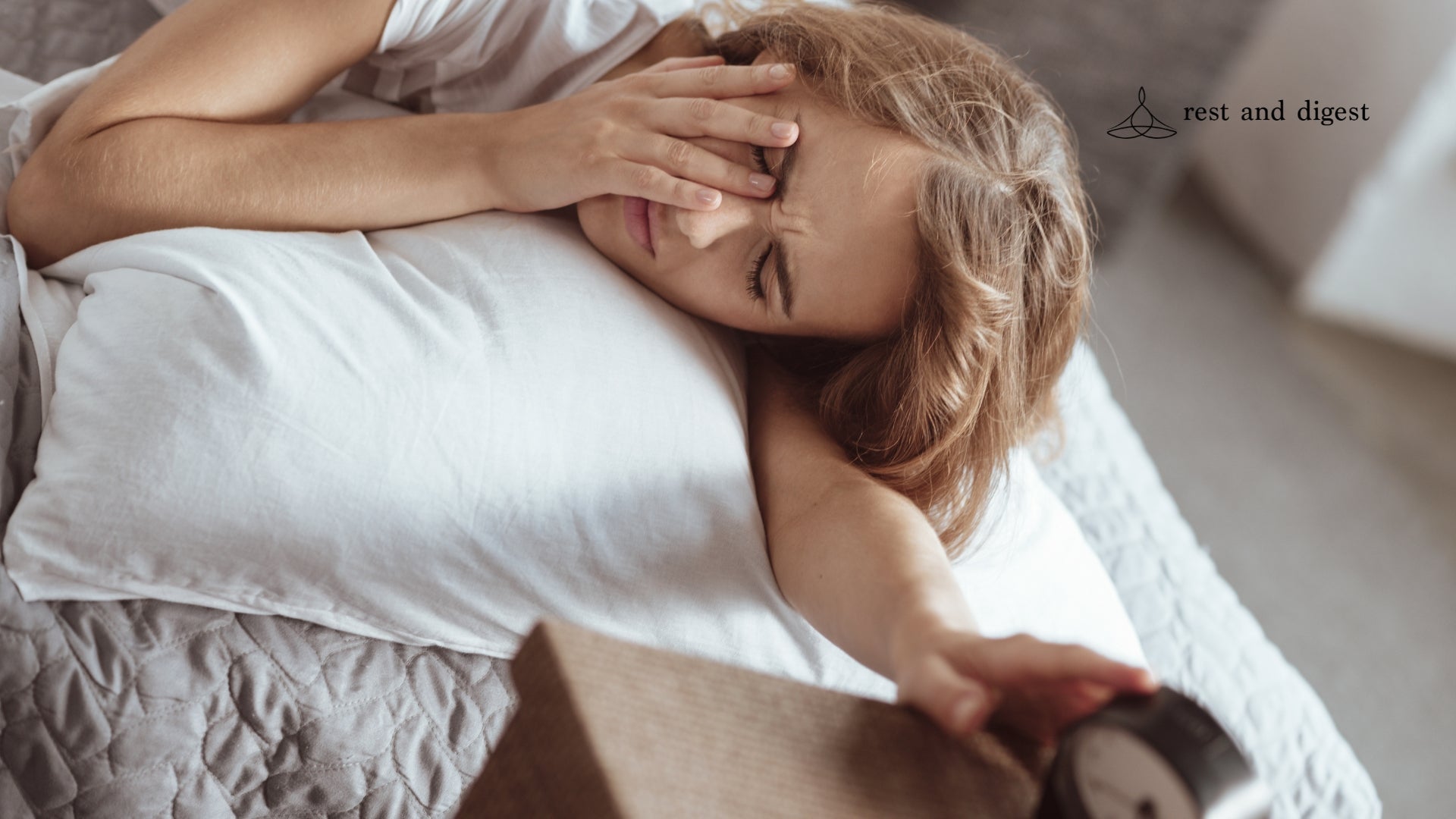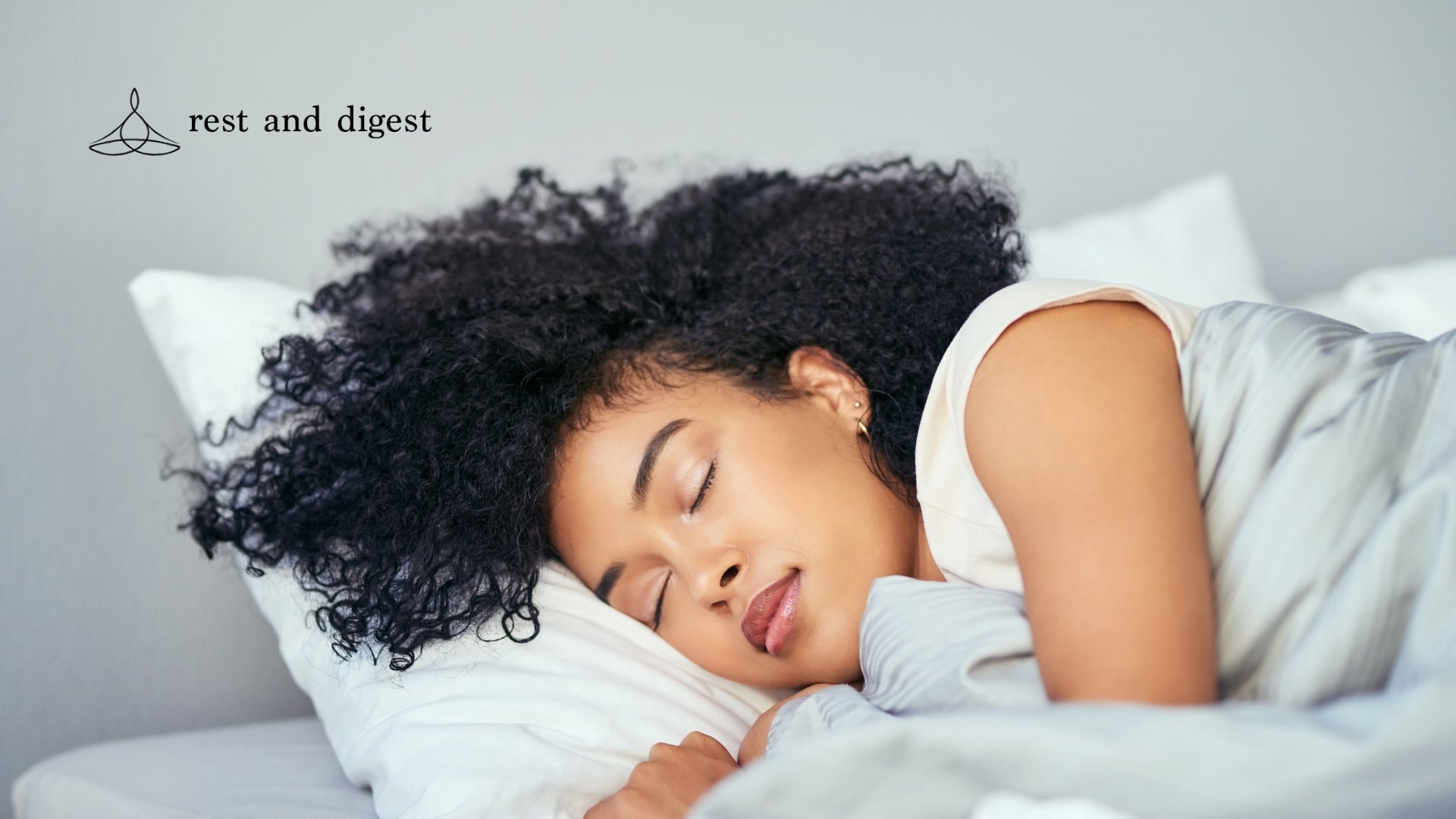
Why You’re Always Waking Up Tired (Even After 8 Hours Of Sleep)
You clock in your eight hours, tuck yourself in at a decent hour and do all the “right” things. Yet you still wake up groggy, sluggish and wondering, “Why am I so tired?”
The truth is, getting enough sleep doesn’t always mean getting restful sleep. It’s not just about the number of hours — it’s about the quality, consistency, and what’s going on in your body and mind while you rest.
Why Do We Actually Need Sleep?
Sleep isn’t just downtime — it’s your body’s nightly reset. During sleep, your brain consolidates memories, processes emotions and clears out toxins. Your body repairs muscles, restores energy, balances hormones and supports your immune system.
Without good-quality sleep you may struggle to focus, make decisions or manage emotions. Over time chronic sleep issues can raise the risk of heart disease, diabetes, depression and other serious health conditions. In short sleep is essential for your overall wellbeing.
Isn’t 8 Hours Enough?
For most adults 7 to 9 hours of sleep is ideal. But not everyone feels refreshed on the same amount. Some thrive on 7, others need closer to 9. And kids and teens often need more.
What really matters though is how well you sleep — not just how long. Tossing and turning through the night, waking frequently or missing deep and REM sleep can leave you drained even after a full eight hours in bed.
So Why Do You Still Feel Tired?
If you’re regularly waking up tired it could be due to one (or more) of the following:
Poor Sleep Quality
You might be in bed for eight hours but not reaching the deep stages of sleep your body needs. Light sleep, interruptions from noise, uncomfortable bedding or too much light in the room can all prevent restorative rest.
Undiagnosed Sleep Disorders
Sleep apnea, restless leg syndrome or insomnia are common disruptors. If you snore loudly, wake up gasping or still feel exhausted no matter how much sleep you get a sleep disorder might be the cause.
Medications
Some medications — like antidepressants, antihistamines or blood pressure meds — can disrupt sleep or make you feel groggy during the day. Talk to your doctor if you think your meds are affecting your sleep.
Stress And Anxiety
Racing thoughts or chronic stress can keep your body on high alert even while you sleep. This can lead to frequent wake-ups or shallow sleep that leaves you feeling unrested.
Unhealthy Lifestyle Habits
Diet and exercise can play a big role in sleep quality. High sugar or processed foods can mess with your blood sugar levels and a sedentary lifestyle can reduce your ability to fall — and stay — asleep.
Underlying Health Conditions
Conditions like hypothyroidism, depression, diabetes or chronic fatigue syndrome often come with sleep disturbances or persistent fatigue. If you’re managing one of these and still waking up tired talk to your healthcare provider.
How To Improve Your Sleep
Luckily many of the factors that affect your sleep can be managed or improved with simple lifestyle changes.
Maintain A Sleep Friendly Space
Your sleep environment plays a big role in how you sleep. Keep your bedroom cool, dark and quiet to tell your body it’s time to wind down.
Upgrade your sleep setup with the Rest and Digest 100% Mulberry Silk Pillowcase — it’s gentle on your skin and hair and you’ll wake up feeling fresh. Add a Restore Eye Pillow to ease tension around the eyes and calm your mind. To create a bedtime ritual spritz your pillow with The Base Collective Beauty Sleep Spray to help ease you into sleep — the calming botanicals will invite relaxation.
Stick To A Routine
Try going to bed and waking up at the same time every day even on weekends. A consistent sleep-wake cycle keeps your internal clock in sync and makes it easier to fall asleep naturally.
To support your routine use the Rest and Digest Analog Alarm Clock with Light which wakes you up gently with a soft glow — no jarring blue light. For ultra sensitive sleepers the Silent Alarm Clock ensures a peaceful quiet wake up without disturbing your sleep.
Unplug And Unwind Before Bed
Avoid your phone and any screens for at least an hour before sleep — the blue light will disrupt your melatonin levels. Also avoid caffeine, alcohol and heavy meals in the evening. Instead settle in with a warm cup of Love Tea Organic Sleep Tea, a soothing herbal blend to ease you into sleep.
Engage In Relaxation Rituals
Mindful bedtime routine slow down your body and quiet your mind. Try journaling in a Leuchtturm1917 Bullet Journal or Bespoke Letterpress Gratitude Journal to clear your mind. For physical relaxation use Hayo’u or The Base Collective skincare and treat yourself to a Gua Sha massage. A warm soak in Magnesium Bath Salts will further relax tense muscles and prepare you for a good night.

When To See A Doctor?
If lifestyle changes don’t work and you’re still waking up tired it’s time to see a doctor. Look out for:
-
Loud snoring, choking or gasping during sleep
-
Extreme daytime sleepiness or falling asleep during activities
-
Difficulty falling or staying asleep despite good habits
-
Persistent fatigue even after full nights of sleep
-
Anxiety or depression affecting your sleep
A doctor can run tests or recommend a sleep study to diagnose underlying conditions or health issues.
Don’t Settle For Tired
Waking up tired is not something to be ignored or learned to live with. Restful sleep is key to everything from your mood and memory to long term health. By changing your sleep habits and environment — and addressing any health concerns — you can wake up feeling really refreshed. A few small changes can make for a lot brighter mornings. Good sleep is one of the most important ways to look after yourself - get more sleep and you will generally be happier and healthier.





